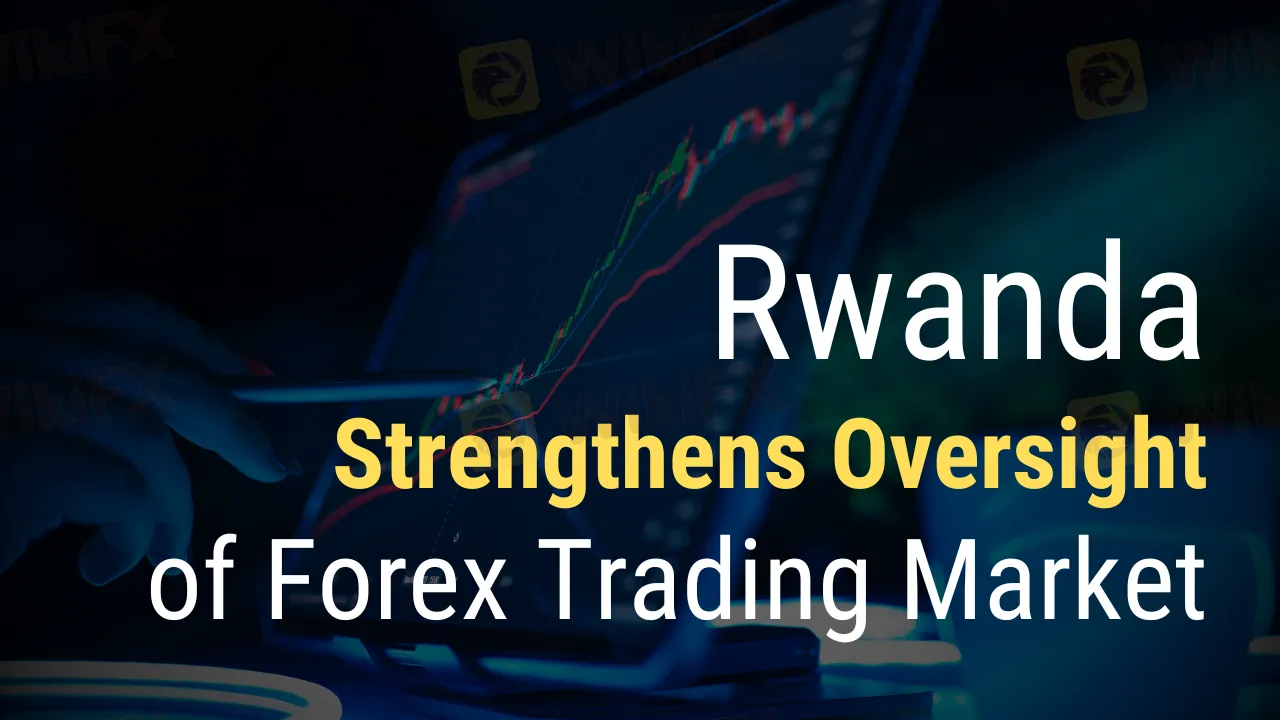简体中文
繁體中文
English
Pусский
日本語
ภาษาไทย
Tiếng Việt
Bahasa Indonesia
Español
हिन्दी
Filippiiniläinen
Français
Deutsch
Português
Türkçe
한국어
العربية
Rwanda Strengthens Oversight of Forex Trading Market
Abstract:CMA Rwanda regulates FX trading to protect investors and ensure sector's integrity. Learn how the new rules affect leveraged foreign exchange traders in Rwanda.

The Sectoral Foreign Exchange Authority of Rwanda (CMA Rwanda) recently published new regulations concerning leveraged foreign exchange trading, which signifies a substantial development in the legal framework surrounding this industry. This trend is consistent with the increasingly recognized surge in the youth demographic's inclination towards leveraged foreign exchange trading in Rwanda. The primary aims of these regulations are to safeguard investors and maintain the credibility of the FX trading sector.
Trader speculation on currency pair values is possible with leveraged forex trading, which runs over the counter via online platforms. An investor's potential earnings and losses rise when they deposit a portion of the trade's total value. Because of the substantial risks involved, everyone working in this business must understand these protocols.
The new rules adopted by CMA Rwanda directly address the growing need for supervision in this sector. Numerous Rwandans, particularly the younger generation of traders, were involved in online forex trading before the implementation of these regulations, and they lacked sufficient understanding of the licensing status of international and local operations. Because of this uncertainty, they faced significant financial risks.

As a result, CMA Rwanda has stressed the need to follow regulatory guidelines for all stakeholders in the Rwandan currency trading market. Currently, obtaining the necessary licenses is necessary. To further minimize hazards, traders are encouraged to verify the license status of trading platforms. With these policies, Rwanda's financial industry should gain investor confidence and stability.
As it promotes the value of efficiency, justice, and transparency, CMA Rwanda aims to create a market environment that supports sustainable development. With its worldwide reach, the FX market offers investors many chances, being the biggest and most liquid financial market. An analysis by the BIS states that it has a daily trade volume of more than $7 trillion. However, there are hazards involved with the potential advantages, such as the possibility of fraud.
To reduce these dangers, regulation in the forex trading industry is crucial. It provides protection against dishonest business practices, con artists, and fraudulent operations for investors. Transparency is now a requirement across all aspects of regulated brokers' operations, including pricing, leverage, and associated risks. Trading platforms can only flourish responsibly and honestly if regulatory oversight is in place to provide stability and consistency across the world's financial institutions.
Rwanda's strategy to govern its expanding forex trading business is taking a significant turn with the introduction of new laws. It emphasizes how dedicated the nation is to keeping its financial industry strong, open, and subject to strict regulations. To control market expansion and safeguard the interests of all stakeholders as it evolves, regulatory frameworks of this type will be essential.

Disclaimer:
The views in this article only represent the author's personal views, and do not constitute investment advice on this platform. This platform does not guarantee the accuracy, completeness and timeliness of the information in the article, and will not be liable for any loss caused by the use of or reliance on the information in the article.
Read more

Doo Financial Expands Regulatory Reach with Offshore Licenses in BVI and Cayman Islands
According to the report, Doo Group, a prominent Singapore-based online brokerage firm, has strengthened its global presence by securing new offshore licenses for its brokerage brand, Doo Financial. The company recently announced that entities under the Doo Financial umbrella have been granted licenses by two key offshore regulatory bodies: the British Virgin Islands Financial Services Commission (BVI FSC) and the Cayman Islands Monetary Authority (CIMA).

Why is there so much exposure against PrimeX Capital?
In recent months, PrimeX Capital, a Forex and CFD broker established in 2022, has become a subject of concern in the trading community. However, despite these enticing features, the broker's reputation has been severely tarnished by multiple complaints and a troubling lack of regulatory oversight.

The Hidden Checklist: Five Unconventional Steps to Vet Your Broker
Forex broker scams continue to evolve, employing new tactics to appear credible and mislead unsuspecting traders. Identifying these fraudulent schemes requires vigilance and strategies beyond the usual advice. Here are five effective methods to help traders assess the legitimacy of a forex broker and avoid potential pitfalls.

Doo Financial Obtains Licenses in BVI and Cayman Islands
Doo Financial, a subsidiary of Singapore-based Doo Group, has expanded its regulatory footprint by securing new offshore licenses from the British Virgin Islands Financial Services Commission (BVI FSC) and the Cayman Islands Monetary Authority (CIMA).
WikiFX Broker
Latest News
AIMS Broker Review
The Hidden Checklist: Five Unconventional Steps to Vet Your Broker
YAMARKETS' Jingle Bells Christmas Offer!
Doo Financial Expands Regulatory Reach with Offshore Licenses in BVI and Cayman Islands
Why is there so much exposure against PrimeX Capital?
Russia to Fully Ban Crypto Mining in 10 Regions Starting January 1, 2025
MTrading’s 2025 "Welcome Bonus" is Here
Doo Financial Obtains Licenses in BVI and Cayman Islands
CFI’s New Initiative Aims to Promote Transparency in Trading
Currency Calculator


